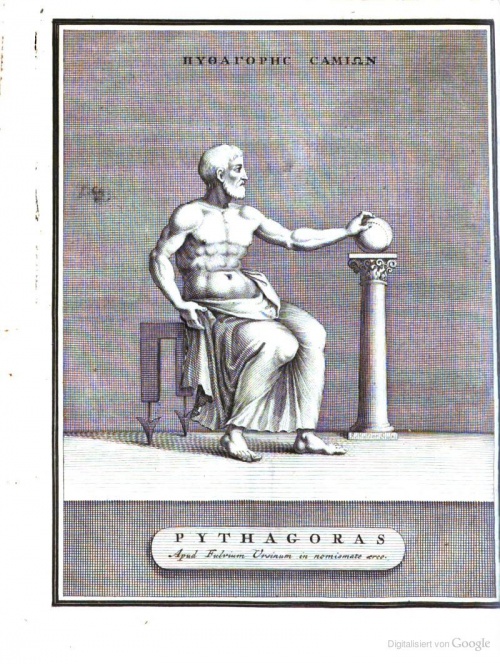Gelehrsamkeit, Bildung und freier Austausch (tphff): Unterschied zwischen den Versionen
Aus Philo Wiki
Anna (Diskussion | Beiträge) K (pics) |
Anna (Diskussion | Beiträge) K (pics) |
||
| Zeile 1: | Zeile 1: | ||
| + | [[Bild:books_002.jpeg|center|500px]] | ||
| + | |||
{| | {| | ||
|[[Bild:books_022.png|400px]] || [[Bild:books_023.png|400px]] | |[[Bild:books_022.png|400px]] || [[Bild:books_023.png|400px]] | ||
Version vom 1. Oktober 2011, 13:54 Uhr
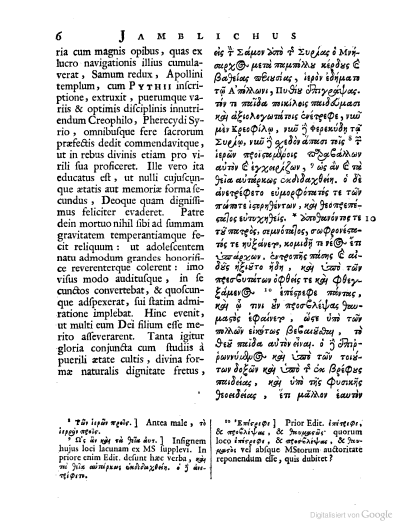 |
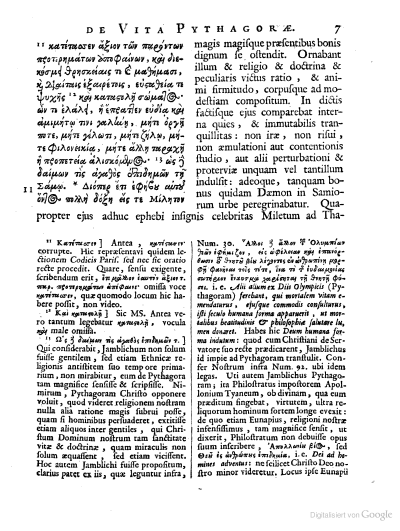
|
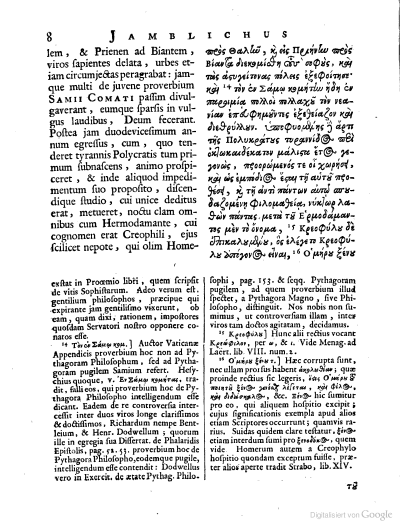 |
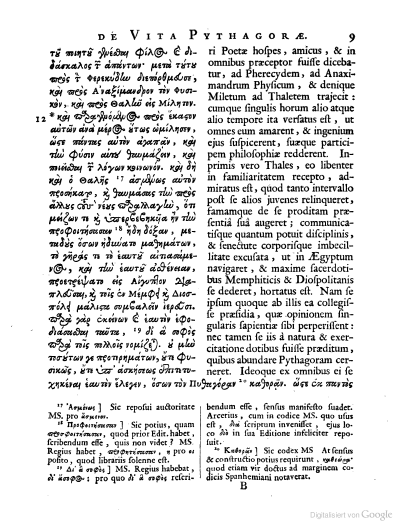
|
Iamblichus of Syrian Chalcis's. Life of Pythagoras
Aus Kapitel 2: Jugend, Erziehung, Reisen
- After Mnesarchus had returned from Syria to Samos, with great wealth derived from a favorable sea-voyage, he built a temple to Apollo, with the inscription of Pythius. He took care that his son should enjoy the best possible education, studying under Creophilus, then under Phorecydos the Syrian, and then under almost all who presided over sacred concerns, to whom he especially recommended his son, that he might be as expert as possible in divinity. Thus by education and good fortune he became the most beautiful and godlike of all those who have been celebrated in the annals of history.
- After his father's death, though he was still but a youth, his aspect was so venerable, and his habits so temperate that he was honored and even reverenced by elderly men, attracting the attention of all who saw and heard him speak, creating the most profound impression. That is the reason that many plausibly asserted that he was a child of the divinity. Enjoying the privilege of such a renown, of an education so thorough from infancy, and of so impressive a natural appearance he showed that he deserved all these advantages by deserving them, by the adornment of piety and discipline, by exquisite habits, by firmness of soul, and by a body duly subjected to the mandates of reason. An inimitable quiet and serenity marked all his words and actions, soaring above all laughter, emulation, contention, or any other irregularity or eccentricity; his influence at Samos was that of some beneficent divinity. His great renown, while yet a youth, reached not only men as illustrious for their wisdom as Thales at Miletus, and Bias at Prione, but also extended to the neighboring cities. He was celebrated everywhere as the "long-haired Samian," and by the multitude was given credit for being under divine inspiration.
- When he had attained his eighteenth year, there arose the tyranny of Policrates; and Pythagoras foresaw that under such a government his studies might be impeded, as they engrossed the whole of his attention. So by night he privately departed with one Hermodamas, - who was surnamed Creophilus, and was the grandson of the host, friend and general preceptor of the poet Homer, - going to Phorecydes, to Anaximander the natural philosopher, and to Thales at Miletu. He successively associated with each of those philosophers in a manner such that they all loved him, admired his natural endowments, and admitted him to the best of their doctrines, Thales especially, on gladly admitting him to the intimacies of his confidence, admired the great difference between him and other young men, who were in every accomplishment surpassed by Pythagoras. After increasing the reputation Pythagoras had already acquired, by communicating to him the utmost he was able to impart to him, Thales, laying stress on his advanced age and the infirmities of his body, advised him to go to Egypt, to get in touch with the priests of Memphis and Jupiter. Thales confessed that the instruction of these priests was the source of his own reputation for wisdom, while neither his own endowments nor achievements equaled those which were so evident in Pythagoras. Thales insisted that, in view of all this, if Pythagoras should study with those priests, he was certain of becoming the wisest and most divine of men.
